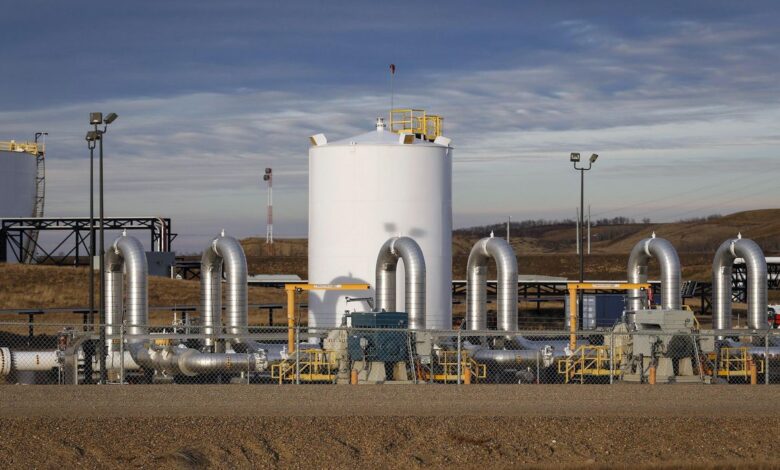Federal Government Approves Natural Gas Pipeline Expansion in Pacific Northwest Despite Environmentalist Opposition

The expansion of a natural gas pipeline in the Pacific Northwest has been approved by federal regulators, despite protests from environmental groups and top officials in West Coast states. The project, known as GTN Xpress, will increase the capacity of the Gas Transmission Northwest pipeline by approximately 150 million cubic feet of natural gas per day. TC Energy, the company behind the pipeline, plans to modify three compressor stations along the pipeline to support the increased flow of gas.
Environmental groups have criticized the decision, arguing that it goes against the region’s plans to address climate change and poses a wildfire risk. The pipeline, which was built in the 1960s, passes through arid regions, and potential spills and explosions could have catastrophic consequences. Audrey Leonard, staff attorney for environmental nonprofit Columbia Riverkeeper, expressed disappointment in the federal regulators’ decision and vowed to appeal.
The approval of the pipeline expansion has also drawn attention to TC Energy’s safety record. In recent years, the company’s pipelines have experienced explosions and oil spills, raising concerns about the potential risks associated with the project.
Oregon, Washington, and California have passed laws requiring utilities to transition to clean energy sources, making the expansion of a methane gas infrastructure contradictory to their climate goals. Democratic officials in these states, including Washington Governor Jay Inslee and U.S. Senators, have strongly opposed the project, emphasizing its incompatibility with existing climate laws.
Despite these concerns, the Federal Energy Regulatory Commission approved the pipeline expansion, stating that there was no evidence presented that the project would significantly increase greenhouse gas emissions. The agency’s chairman, Willie Phillips, expressed support for the project and emphasized that it was deemed necessary.
While the expansion of the pipeline is expected to have limited adverse impacts on the environment, environmental groups argue that the assessment did not adequately address the harm caused by fracking, the technique used to obtain the natural gas. Fracking has been criticized for increasing methane emissions, a potent greenhouse gas.
This approval raises important questions about the balance between energy infrastructure development and environmental concerns. As the nation transitions to cleaner sources of energy, it is crucial to ensure that projects align with climate goals and prioritize the safety of communities and ecosystems.




